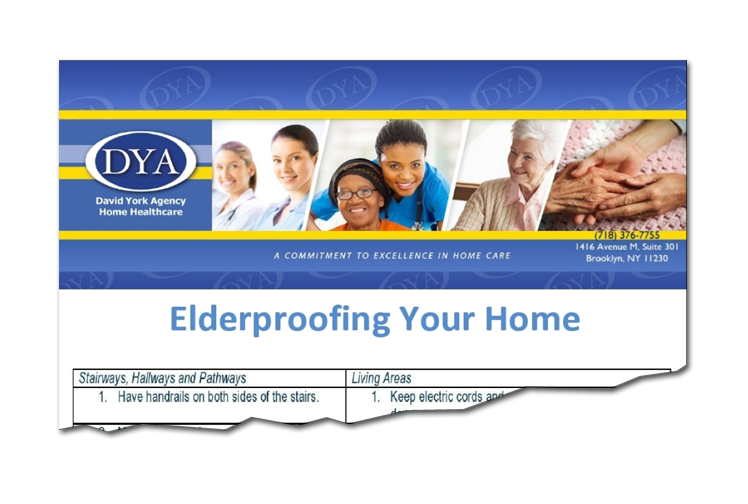A safe home environment. It’s a must for anyone, but it’s particularly hard for the elderly to obtain. Fortunately, there are a number of different things you can do to ensure your loved ones are safer in their homes on a day to day basis, and these tips on elderproofing can help.
A Word of Advice
Before you begin the elderproofing process, it’s particularly important that you talk to your loved one. Explain exactly what you plan to do, and why you plan to do so. The chances are good your loved one may feel as if his or her privacy is being invaded without having this essential discussion at the outset.
Helpful Tips
While elder-proofing can involve extensive remodeling, that’s not always the case. Often a simple weekend of repairs can make the changes necessary to keep your loved one secure in his or her home.
-
Start in the Bathroom: The water in the bathroom makes it one of the most dangerous places in the house. Install grab bars around the tub, shower, and even the towel rack. You’ll also want to be sure you have non-slip rugs on the floor. Inside the tub and shower, install a surface that provides a solid footing so slips can’t happen.
-
Think Floors: Flooring concerns throughout the house are often present, as there are many hidden hazards that can create slip and trip situations. Remove any obstacles that might create a situation where someone could fall. Throw rugs can make people trip quite easily, and low lying furniture is an obstacle that could create a fractured hip or ankle quite quickly. You may even want to consider carpeting over slick surfaces.
-
Add Some Light: Eyesight deterioration is a natural part of aging, and homes that don’t have good lighting tend to become a safety issue. Consider some low voltage track lighting or recessed so you can keep lights on as much as possible. You may even want to add nightlights to keep it bright even when the sun sets.
-
Easy to Reach: Throughout the home, but especially in the kitchen area, make sure everything is within easy reach. Stools or ladders are serious hazards, so make sure your loved one can reach everything necessary to work in any room without a stool of any kind.
-
Keep It Stationary: From chairs to beds to couches, remove the rollers on any furniture that might move. A loved one may reach to grab a piece of furniture for stabilization, but if that furniture moves, a fall is likely.
-
Gas or Electric?: If your loved one has an gas stove, it may be time to consider a electric stove option instead. The sense of smell can diminish with age, and that makes gas powered stoves a fairly serious risk. Electric stoves tend to be far safer in that situation.
-
Stoves: For the elderly with dementia, safety knobs similar to those use for childproofing may be necessary. Dementia patients are at higher risk of putting something on the stove and forgetting that it’s there creating a serious fire hazard.
Not sure you can tackle everything that needs to be done? You may want to consult a home healthcare agency or a geriatric social worker with experience in elder-proofing the home to get a better sense of what changes should be implemented immediately.
David York Agency has done a lot of research about elder proofing homes and has compiled a concise, handy chart for caregivers to use which is available on the caregiver resources page of their website. Call today to learn about the full array of services we offer. Contact us at 718.376.7755 and visit our website.
David York Agency Home Healthcare Can Help Seniors
At David York Agency, we understand the many challenges and risks faced by the aging and elderly and are dedicated to providing care to support them through all of those ups and down. At David York Home Healthcare Agency, extraordinary service is what sets us apart from other companies that provide in home healthcare services.
DYA we could provide direction as to how to manage the total care of your senior loved one. Whatever your care needs, we are there for you, always striving to exceed your expectations. For more information about David York Agency’s qualified, compassionate caregivers, contact us at (718) 376-7755. A free phone consultation can help you determine what services would meet your needs. We aim to provide you and your loved one with the assistance they need. If you’d like to hear more from us, please like us on Facebook or follow us on Twitter or LinkedIn.
For more helpful tips and information, check out our blog or contact us today.







